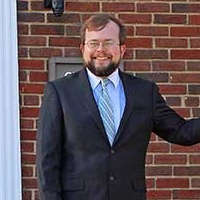Chase City Criminal Lawyer, Virginia
Sponsored Law Firm
-
 x
x

Click For More Info:
-
Price Benowitz LLP
409 7Th St Nw Suite 200 Washington, DC 20004» view mapCriminal Law Working Relentlessly For You
Our firm was built on the understanding that comprehensive representation does not begin and end in the courtroom.
202-600-9400
Michael Glendon Henkle
✓ VERIFIEDCriminal, Business, Traffic, Power of Attorney, Estate
Glen Henkle is a lifelong Virginian whose family has proudly called this state home for over 200 years. Although born in Richmond, he was raised and a... (more)
Brendan Ulysses Dunning
Motor Vehicle, Lawsuit & Dispute, Criminal, Accident & Injury
Status: In Good Standing
Don Pyle Bagwell
Government, Divorce & Family Law, Criminal, Civil & Human Rights
Status: In Good Standing
Elizabeth Blair Trent
Traffic, Child Custody, DUI-DWI, Personal Injury, Estate Planning
Status: In Good Standing
 Seth Price Washington, DC
Seth Price Washington, DC AboutPrice Benowitz LLP
AboutPrice Benowitz LLP Practice AreasExpertise
Practice AreasExpertise

